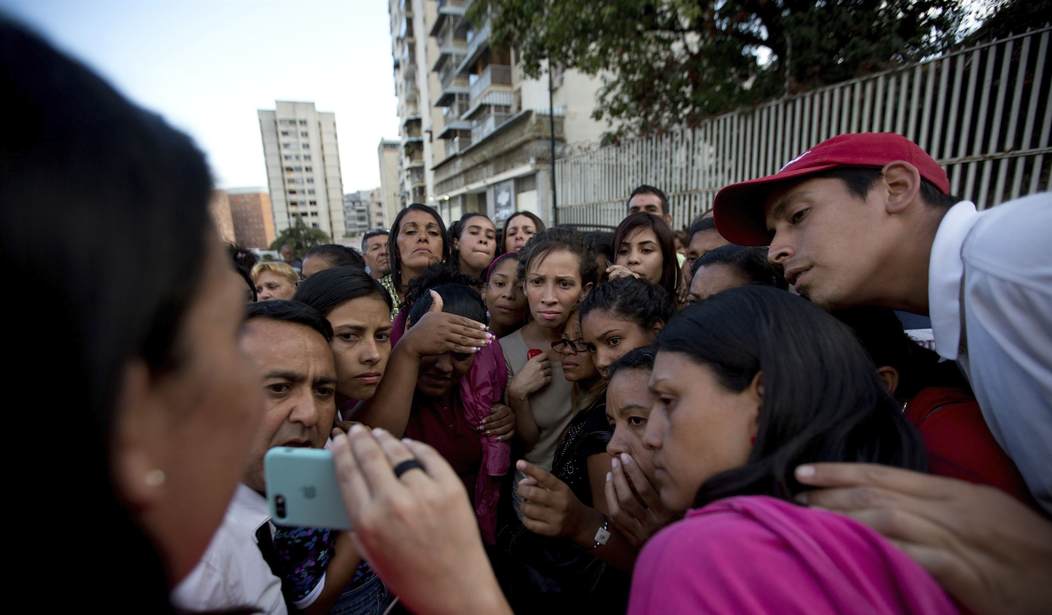That description is of a Salvadoran migrant waiting in Embajadores de Jesus in Tijuana to enter the United States with his wife and children to claim asylum. He said he is at the point of giving up over frustration with the new app program meant to take over for Title 42, which may be ending shortly, depending on what the Supreme Court decides.
The routine is the same every morning at the shelter, one of Mexico’s largest. Migrants wake up before sunrise and go online with hopes of securing an appointment to seek asylum in the United States. The action is being compared to purchasing concert tickets online. The system is overwhelmed. On any day, you can see about 100 people on their phones trying to use the CBPOne app. New appointments are available every day at 6:00 a.m. However, migrants are receiving error messages from the U.S. government’s mobile app. It’s been overloaded since the first day, January 12. Migrants find themselves unable to log in, others get in and enter their information and select a date for an interview but then the screen freezes when it’s time for final confirmation. Others get messages that they must be near a U.S. crossing even though they are in Mexico’s largest border city.
The whole point is to insist the migrants use legal ports of entry as they travel to their asylum hearing. This point is lost on those unconcerned if they enter the country legally or not. Coming in through a U.S. crossing was one of the stipulations of the new app from its introduction.
Two of more than 1,000 migrants at Embajadores de Jesus got appointments in the first two weeks, according to the director, Gustavo Banda. There is frustration. Americans dealing with government websites can relate.
“We’re going to continue trying, but it’s a failure for us,” Erlin Rodriguez of Honduras said after another fruitless run at an appointment for him, his wife, and their two children one Sunday before dawn. “There’s no hope.”
Mareni Montiel of Mexico was elated to select a date and time for her two children — then didn’t get a confirmation code. “Now I’m back to zero,” said Montiel, 32, who has been waiting four months at the shelter, where the sound of roosters fills the crisp morning air at the end of a rough, dirt road.
When (if) the mobile app does replace Title 42, it can serve to discourage large camps of migrants on Mexico’s side of the border. There are several problems to overcome.
— Applications are available in English and Spanish only, languages many of the migrants don’t speak. Guerline Jozef, executive director of the Haitian Bridge Alliance, said authorities failed to take “the most basic fact into account: the national language of Haiti is Haitian Creole.” U.S. Customs and Border Protection says it plans a Creole version in February; it has not announced other languages.
— Some migrants, particularly with darker skin, say the app is rejecting required photos, blocking or delaying applications. CBP says it is aware of some technical issues, especially when new appointments are made available, but that users’ phones may also contribute. It says a live photo is required for each login as a security measure.
The issue has hit Haitians hardest, said Felicia Rangel-Samponaro, director of The Sidewalk School, which assists migrants in Reynosa and Matamoros, across from Texas’ Rio Grande Valley. Previously, about 80% of migrants admitted to seek asylum in the area were Haitian, Rangel-Samponaro said. On Friday, she counted 10 Black people among 270 admitted in Matamoros.
— A requirement that migrants apply in northern and central Mexico doesn’t always work. CBP notes the app won’t work right if the locator function is switched off. It’s also trying to determine if signals are bouncing off U.S. phone towers.
— Some advocates are disappointed that there is no explicit special consideration for LGBTQ applicants. Migrants are asked if they have a physical or mental illness, disability, pregnancy, lack housing, face a threat of harm, or are under 21 years old or over 70.
Since Biden took office, CBP has relied on arranging exemptions for migrants through advocates, churches, attorneys, and migrant shelters. They were not publicly identified and they didn’t say how many slots there were available for migrants. There were allegations of favoritism and corruption. In December, CBP cut ties with one group that was charging Russians.
The success of the mobile app is a potential way of lessening the flood of illegal migrants trying to cross the southern border. That won’t happen, though, if migrants have no faith in it. There are complaints about the small number of asylum-seekers getting through.
CBP, which schedules appointments up to two weeks out, declines to say how many people are getting in. But Enrique Lucero, director of migrant affairs for the city of Tijuana, said U.S. authorities are accepting 200 daily in San Diego, the largest border crossing. That’s about the same as the previous system but well below the number of Ukrainians processed after Russia’s invasion last year.
Color me surprised that a large government effort using a mobile app for asylum-seekers is running into a brick wall. Not. We’ll see if the generally inept Biden administration, especially DHS, can get this program on track.








Join the conversation as a VIP Member